The Abortion Rights Poetry Contest
The Abortion Care Network (ACN), a national organization of independent abortion providers and prochoice supporters, and Split This Rock hosted an Abortion Rights Poetry Contest annually from 2012-2017. The contest was free to enter and open to poets from any part of the U.S. The contest was judged by representatives of the Abortion Care Network and Split This Rock, as well as a special guest judge.
Past winning poems can be read in The Quarry and below (click on the year to jump down to the desired section): 2017 2016 2015 2014 2013 2012
Themes: The contest welcomed the submission of poems about the various experiences of people who seek abortion and other reproductive services. For some, there is safety, relief, and good medical care. For others, there is doubt, harassment, and stigma. For all, health care takes place in a politicized context in which even the most basic choices about our bodies, sexuality, and childbearing can be scrutinized. Reproductive rights are also linked to a whole host of other social issues, such as economic status and the accessibility of safe, affordable health care.
Prizes: The contest awarded the following prizes: First ($100), Second ($75) and Third Place ($50), and Honorable Mention. Additionally, winning poems were published in The Quarry, Split This Rock’s online social justice poetry database and were distributed to ACN's national network of reproductive serve providers and supporters. All prize winners also received free registration to Split This Rock Poetry Festival.
Submission Guidelines:
- All styles and approaches accepted.
- Submit up to 3 poems (6 pages maximum) as one document by midnight (EST) via Submittable. If Submittable is not accessible to you, please contact us at info@splitthisrock.org and we'll send instructions on how to submit your poems.
- One entry per poet, please.
- We read blind. Please do not put your name or contact information on the document you upload to Submittable or within its title or your poems will be in jeopardy of being disqualified.
- Previously published in print is acceptable, but, please, not on the web.
- Simultaneous submissions accepted. Please inform us immediately through Submittable if the poem has been accepted for publication elsewhere. If Submittable is not accessible, let us know by emailing us at info@splitthisrock.org.
- Close friends, relatives, students, and former students of the judge are excluded from the contest. Likewise, the current Board of Directors, staff, teaching artists, and DC Slam Team of Split This Rock are excluded, as are members of their immediate families. (For more detail: visit the code of ethics on our website.)
- Except for special circumstances we are aware of in advance, we do not accept mailed or emailed submissions.
We encourage you to submit before the deadline so that if you encounter problems we can assist you.
Late entries will not be accepted.
Once decisions have been made, you will receive an email notifying you of the status of your submission. We do not send hard copy notifications or accept self addressed stamped envelopes. Please monitor Split This Rock’s website and Facebook page for updates on the contest if for some reason you have trouble receiving emails.
Split This Rock subscribes to the Council of Literary Magazines and Presses Contest Code of Ethics. Read it online at our website.
ACCESSIBILITY: If Submittable is not accessible to you, please contact us at info@splitthisrock.org for alternate methods of submitting to the contest.
For more information on the Abortion Care Network, visit their website.
Questions? Contact us at info@splitthisrock.org.
The Fifth Annual Abortion Rights Poetry Contest (2016)
The Abortion Care Network (ACN) a national organization of independent abortion providers and prochoice supporters, and Split This Rock are pleased to present the winning poems and honorable mentions for our Fifth Annual Abortion Rights Poetry Contest, chosen by the 2016 panel of judges, including special guest judge, Sonya Renee Taylor.
ABOUT THE JUDGE: SONYA RENEE TAYLOR
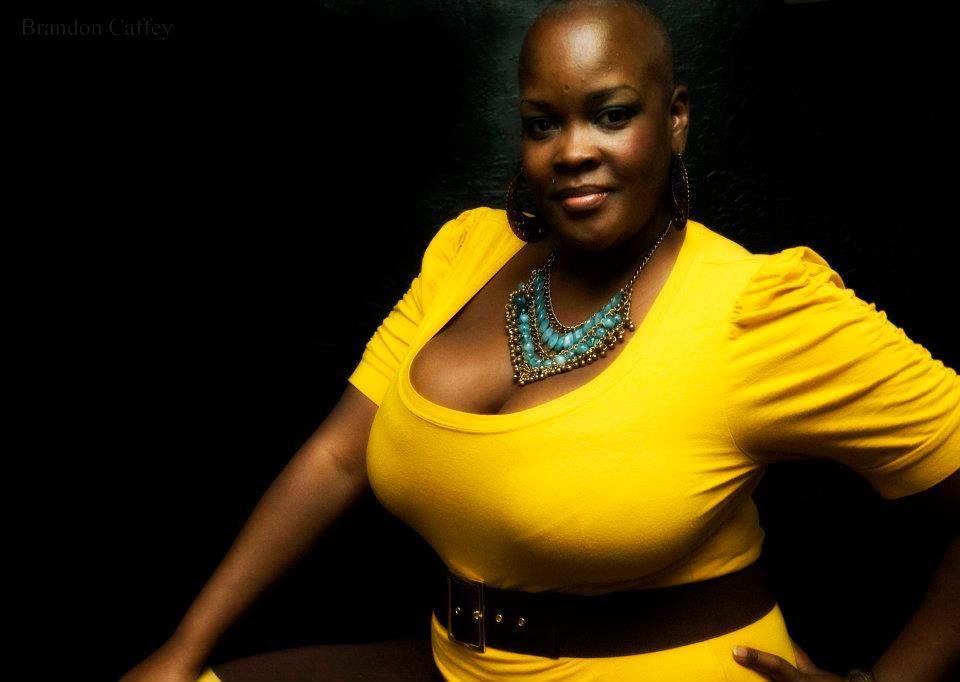 Sonya Renee Taylor is an award-winning poet and activist. Founder of the intersectional international movement The Body is Not An Apology and the creator of the RUHCUS (Radically Unapologetic Healing Challenge 4 US) Project, her poetry appears in numerous journals and anthologies including Spoken Word Revolution:Redux, Growing Up Girl, Off Our Backs, Beltway Quarterly, Just Like A Girl, X Magazine and On the Issues Magazine. Her first collection of poetry, A Little Truth on Your Shirt was released by GirlChild Press in 2010. Sonya’s work has been translated into Dutch, Swedish and German, used as curriculum in universities across the country and abroad, and as a tool for community and national action for organizations such as the Black AIDS Institute, HIV Campus Education, and Gloria Steinem’s reproductive rights organization, Choice USA. For more, visit her website.
Sonya Renee Taylor is an award-winning poet and activist. Founder of the intersectional international movement The Body is Not An Apology and the creator of the RUHCUS (Radically Unapologetic Healing Challenge 4 US) Project, her poetry appears in numerous journals and anthologies including Spoken Word Revolution:Redux, Growing Up Girl, Off Our Backs, Beltway Quarterly, Just Like A Girl, X Magazine and On the Issues Magazine. Her first collection of poetry, A Little Truth on Your Shirt was released by GirlChild Press in 2010. Sonya’s work has been translated into Dutch, Swedish and German, used as curriculum in universities across the country and abroad, and as a tool for community and national action for organizations such as the Black AIDS Institute, HIV Campus Education, and Gloria Steinem’s reproductive rights organization, Choice USA. For more, visit her website.
SELECTED POEMS
First Place
YOUR COUNTRY AND EVERYONE IN IT
by Abby Minor
1. [July 2013 Millheim, Pennsylvania]
This is how you miscarry on purpose, with pills:
this is how you eat a sack of tattered peonies.
With stippled petals in your mouth, this is how
you set the little sunset-
colored bottle by the bed, orange plastic bright
as halo-stains.
This is how you iron and tear a man’s
white cotton t-shirt into strips. These are the instructions
in a stack. Here, these are the peonies, mottled open. This is the number to call
if passing blood clots
larger than a lemon.
2. [March 2014 Columbia Falls, Montana]
This is how you choose an axe.
This is how for weeks you watch your shadow
like a piece of sour silk, a grainy wing. This is how you drink.
This is how the Flathead Valley’s clouds run rootless
in the spring, cressets flash between the grasses, snow
and fire in the waters of the lake. This is how you dream
another river, flicker in the cedars. Whitefish, Salish, Stillwater, Swan.
With a river kicking in your teeth, this is how you toss
a match, watch your shadow burn.
3. [July 2013 Harrisburg, Pennsylvania]
This is how, to get the pills, you leave
at dawn. This is how the nation prickles
in your palms—edgy as a bag in brambles, drift
and kick, an empty rattle
in the weeds. This is how you find the building by the Susquehanna.
This is how you memorize the other women’s faces.
This is how your sweetheart waits, how they call you in
and send you out again, how you travel
home, orange bottle
and a blue glove tucked inside your purse.
4. [March 2014 Kalispell, Montana]
This is how you find out where the doctor works.
This is how you go, woodsman, into the dusk, hunting fuel
for what fire, against what cold? Closely,
how the horses
down on Wildhorse Island sleep in snow, in their own language,
on camus roots, on cliffs.
5.
This is how you spread a sheet in shaking sun,—
This is how you smash the backdoor’s glass at night;
this is how you eat a river, how
you push the pills inside and wait, how
you dream fluently in peonies of fire, how
you hammer-claw the faces out in photographs, scatter
files, amber everything with iodine. This is how
you start to bleed, how you
hatchet plumbing, make the water heater
moan. This is how you soak the cotton strips.
This is how the furnace gives, how tables split, how you hew
the ultrasound machine and pull the potted jade
up by its roots. This is how they find you, a wilted wing, womb
still clenching like a tired fist, pistol
in your pocket. A line of your own blood
drawn across your palm. This is what you tell them:
This is how I name myself: this is how
I talk to God.
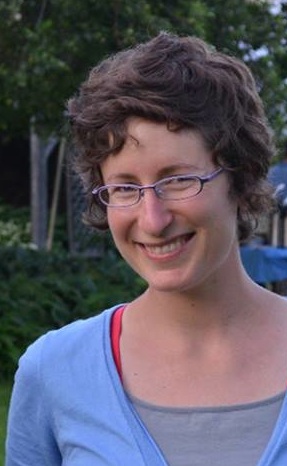
Abby Minor lives and works in Pennsylvania’s ridge and valley region, where she directs Being Heard, a creative writing program that honors the voices and imaginations of my county’s elders. Her poems have appeared or are forthcoming in Weave Magazine, CALYX, The Fourth River, and So to Speak; her first chapbook is forthcoming from Dancing Girl Press.
Second Place
WHAT IT WAS LIKE
by Catherine Klatzker
The world was always a place of silence,
of congenital shame—even before those days
in 1967, four years before you met your love. Your
strength grew belatedly, fertilized as it was in the
knowledge that you were nothing. Your life did
not matter to anyone, except to hurt you.
~
Every time you awake in your hospital bed
men in white say, What did you do? Tell us
what you did! Did you try to abort? Every time
for five hemorrhaging days, you say you
didn’t do anything. I did nothing, you protest.
You deny the criminal abortion. A policeman
stands guard at your door. Surreal. Angry
doctors shout at you, demand your statement
of guilt. You are bleeding out in a Sacramento
public hospital. Transfusions of living blood
finally drip into your veins, saving you for the
confession they expect, to have you arrested.
Don’t tell. Never tell. The fallback admonition
learned in your father’s house—now useful again.
Dime-sized white tissue passes, and a D&C
can be done. An angry medical resident scrapes
your uterus, no medication: You don’t deserve meds.
You agree. You are nothing. You feel nothing.
You go into the wall. Surreal. Voices and images
of other women and girls billow from the walls
around you and you know them, their voices
are your own, sharing something you cannot
name, and you claim them: your witnesses, your
delusions. Thirty years later, in the nineties, you
blurt out to your partner that I almost died one
time, from a criminal abortion. Watchful, you study
his face for the disappointment you expect, the
judgment, just like the men in white, that you are
the lowest of the low, not worth the life of a zygote.
The silence between you stalls and ripens. His voice
chokes when he at last speaks, You must have been
so alone, he says, and you wish you had known him
then —impossible, but all the same. He has always
seen you. His innocence didn’t need your
protection. You didn’t need your old shame.
It is safe to stand up and speak.
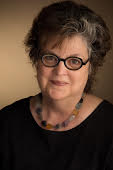
Catherine Klatzker's essays and stories may be seen in The Intima: A Journal of Narrative Medicine, Emrys Journal, Tiferet Journal, (2014 nonfiction winner,) Lime Hawk Journal, The Examined Life Journal, a short-short in River Teeth's Beautiful Things, and in two mental health anthologies: from In Fact Books, and from Lime Hawk Literary Arts Collective. Her work-in-progress, Reunion, was shortlisted for the 2015 Mary Roberts Rinehart Nonfiction prize from Stillhouse Press. Catherine is a member of The Authors Guild, AWP, NAMI (National Alliance on Mental Illness), and ISSTD, (the International Society for the Study of Trauma and Dissociation). WHAT IT WAS LIKE shines a spotlight on a few days of her 1967 illegal abortion.
Third Place
And Still They Come (for Dr. Sue)
by Gordon Cash
You scream your bullhorn lies, intimidate,
Harass, respect no law of man. You speak
Of scalpels, sutures, and sterility,
Dismemberment, death by regret, all lies,
And bear false witness with each one against
Your neighbors – us, and all who come to us
With hope of better days. And still they come.
The patients come, each seeking her own truth.
You rattle war, the war we never made,
Your made-up war you say we wage against
Your made-up victims, conscious and aware
In your hallucinations. You make war
On us, ignore or call collateral
The pain and blood of woman-damage left
In all your battles' wakes. And still they come.
The patients come, each seeking her own peace.
You preach of death, and call us murderers
Of quarter-size, translucent, formless disks.
Idolaters of blind, unfeeling cells,
You count for nothing those already born,
Their hopes, fears, agonies, their very selves,
For nothing all the morgue-slab failures of
Your fevered dogma dreams. And still they come.
The patients come, each seeking her own life.
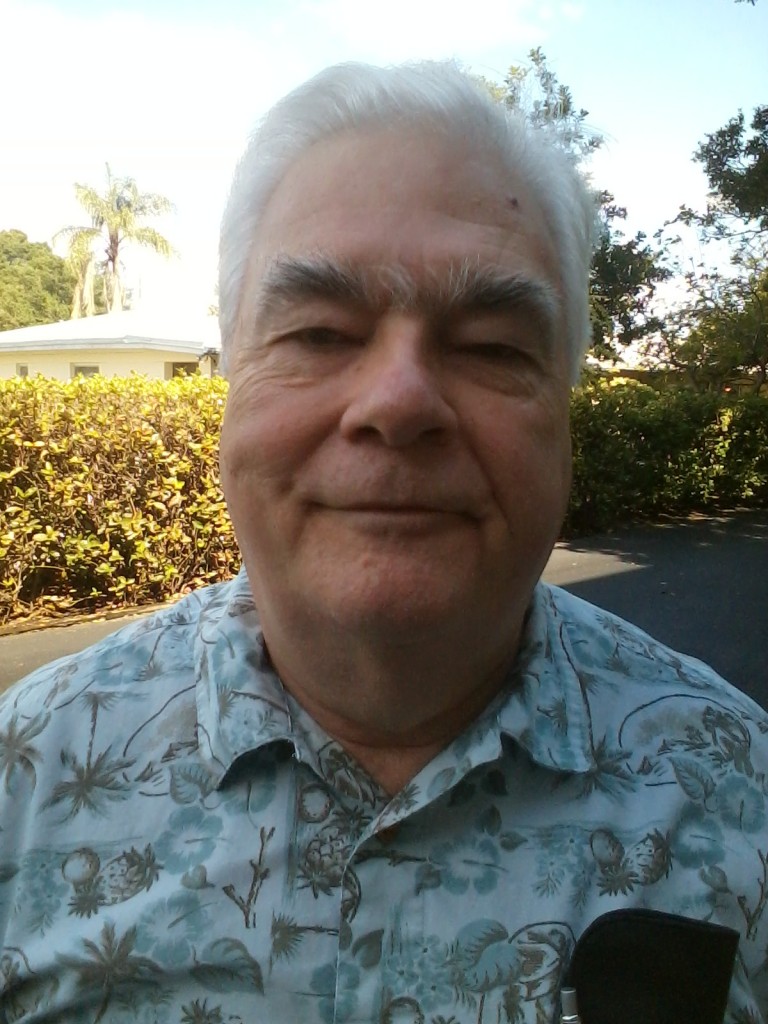
This poem is dedicated to Dr. Susan Wicklund, abortion provider (now retired) and author of the memoir This Common Secret.
Gordon Cash had already graduated from college when Roe v. Wade was decided, so he clearly remembers the bad old days. His 2011 science-fiction short story Thumbs, available at here, built on the absurdity of the "human life begins at conception" mindset. He lives in Annapolis, MD, works in Washington, DC, and looks forward to becoming more politically active when he retires in 2016.
Making Waves: The Fourth Annual Abortion Rights Poetry Contest (2015)
The Abortion Care Network (ACN) a national organization of independent abortion providers and prochoice supporters, and Split This Rock are pleased to present the winning poems and honorable mentions for our Fourth Annual Abortion Rights Poetry Contest, chosen by the 2015 panel of judges, including special guest judge, Katha Pollitt.
About the Judge: KATHA POLLITT
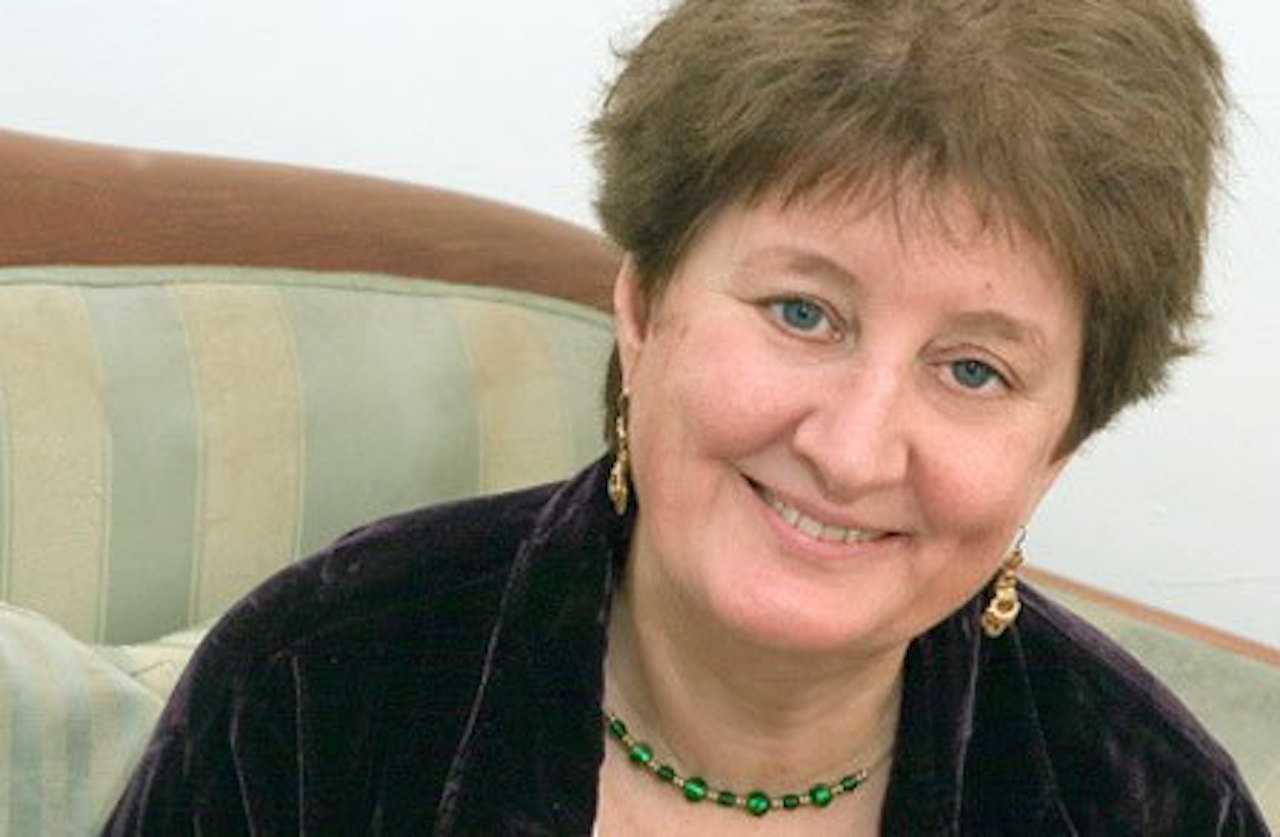
For the first time, the contest had a special guest judge, Katha Pollitt. Pollitt is a renowned polemicist, poet, and feminist. Her new book Pro: Reclaiming Abortion Rights (2014) is a defense of abortion as a social good. She is also the author of numerous collections of essays and poems, including the critically-acclaimed Antarctic Traveler (1982) and The Mind-Body Problem (2009).
SELECTED POEMS
First Place
THE WORLD WHERE IT IS
by Beth Spencer
I imagine a world where this won't be necessary,
and then return to the world where it is.
---Sallie Tisdale
1
In the atrium of the principal church
in a certain Irish city
it is said a girl can find beneath a bench
among the tea roses the name of an abortionist.
She need only bring a scrap of paper
and a bit of char to rub. No one knows
who carved the name, or when,
only that the woman is reliable
and clean. If asked, she will tell you
of her years in the convent laundry,
her escape, her apprenticeship to a man
from London. Her fee is small,
and she hums to put her clients at ease.
A melody they cannot quite remember after.
2
All methods have a failure rate
said the nurse, and asked if I could scoot
a little farther down, my feet in warm oven mitts
snugged over the posts of the exam table.
I recalled the methods that had failed me,
including 'wishful thinking,' the most recent.
The aspirator tugged a bit, like a small cramp.
I thought of the flowers my friend had brought
when I told her I was pregnant. Daisies, each petal
a choice spreading from a yellow wheelhouse of choices.
She, a mother of three from a huge extended family
whose connection and liveliness I admire.
But I, a solitary sort, have never wanted such a life.
I am grateful for her friendship, also my childlessness.
3
Listen, a desperate woman will do what she must
whether it's legal or not.
Go abroad or up a filthy stairwell off an alley,
eat poison, work a hanger into her womb,
take all her pills at once
& pray to the goddess of miscarriage,
the one whose chariot has a broken axle
but excellent shock absorbers.
The ground between the sides has no median strip,
it's a faultline where one can fall through
for failure to follow through, as a friend once said.
Still, I stand at the sideline, taking notes
the way I used to take histories
of the patients in the clinic where I worked.
I find I cannot hate the shriekers,
I wish they'd just go home.
They are as enraged about abortion
as I am about the killing of wolves
out here in the west, where men drive trucks emblazoned
with signs that say Wolf Management Plan:
Shoot, Shovel, Shut Up.
I say wolves--& bears & old growth forests--
deserve to live as much as humans do,
that we need to better love
what is already here. Remember Rome's oldest story--
a mother wolf gave such to human twins,
charity we'd be wise to emulate.
Stop war. Feed people, plant trees, build schools.
Spring the traps.
Make places for women to lie down in safety
to end what sometimes must be ended.
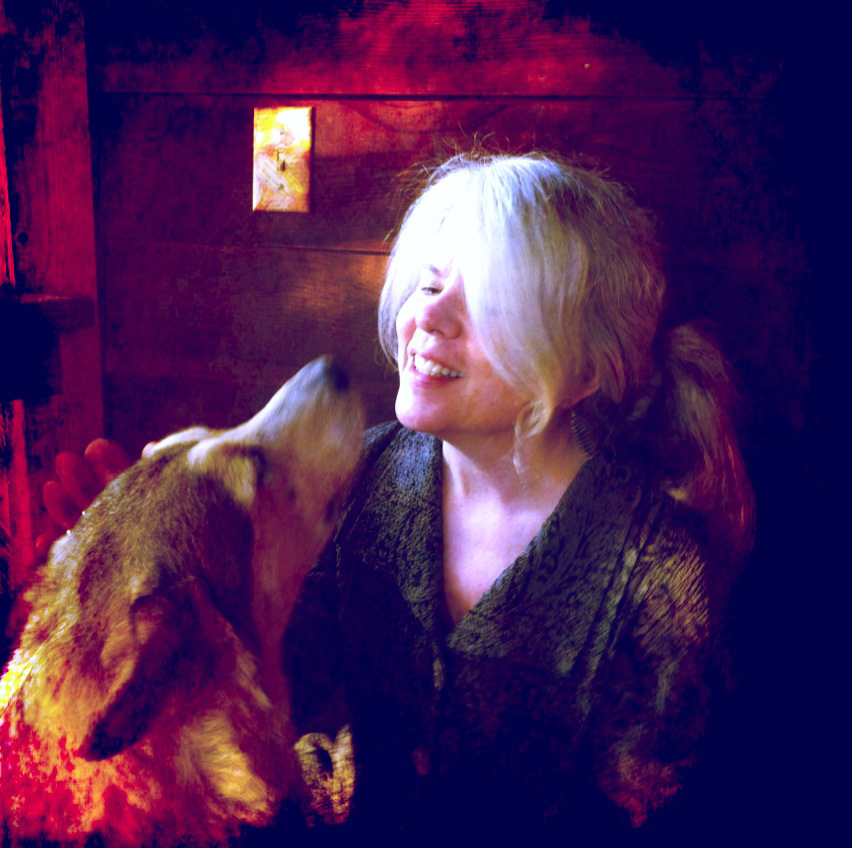
Beth Spencer runs Bear Star Press, which publishes poetry and short fiction by writers in the western states. She lives in rural Northern California with her husband and dog.
Second Place
For What I Am About to Do
by Anna B. Sutton
This morning, there is an angel hanging by a thread,
cartoonish and carved out of soft wood. She twirls
circles above me, manipulated by the pulse
of a ceiling vent. Her purple dress is airless,
static, cut clumsy as the rest of her. I am laid out
below, open-legged like a pair of discarded scissors, rusting
in the grass. My starched hospital gown smells like driftwood
and bleach--nature rot and our chemical penance. The drugs
are taking effect. If I were an angel--without the weight of desire,
above the realm of human shame--I would never dress. My body
would be a collection of little prayers--the mouth of meeting
thighs, hanging breasts like bended knees, folds of skin
that soften the edges of my torso, thumprint
dimples on my lower back, proof of God's touch.
As a young girl, I cradled a sweater stuffed
under my dress. Every childhood game began
or ended with the act of birth. The clothes closet:
a delivery room I entered alone, exited, arms wrapped
around a plastic doll, my fingers stained purple--grape ice-pop
dye. The Valium, the Demerol. The hum of the medical vacuum
like cicadas in the backyard. Outside my childhood
bedroom, the trees were so tall. They housed a hundred lives
in each of them. Many more, really. Outside this room,
there is an armed guard, bulletproof glass, the rest of my life.
-- Previously published in Third Coast, Issue 38/39

THIRD PLACE
judgement call
by Amber Flame
like hearbreak, you are sure
that your story is different. felt
not worst but not exactly
explainable to anyone else. even or
especially the ones who told their stories.
you wrote about it the same way too,
just like, "dear heartbreak, never has there
been a _________ like this" but
the poems never went anywhere. could
not finish themselves. you
didn't tell many people. it didn't feel
good to be surrounded by silent nodding
or worse, reassurances full of pity.
the day after the _____________, you are
sure you are a stupid girl. that this is
all the proof. you are sure that some
thing huge is over. the ground shook.
the wave crashed. you had an _____________.
you are sure you are the damages.
the day after is when you have a drink
or three without guilt. the decision done and
gone. that day you have retreated to
a neighborhood where no one would say they
think you were a stupid girl. not even if
they could see the damaged parts. the day after
you have an ______________, you see
the incongruous-to-this-neighborhood conservative sign.
it says what you have done is murder.
you may be sure now that you are a stupid girl.
and all your world has tumbled. but you never
would say you had done murder. this is not
true, you grew up knowing. fact. it is what you used
to say. then. this is why you
flatten your mouth around the word. whisper it.
you tuck it like a secret behind
your stated beliefs. now. you know better,
stupid or not.
you will meet another stupid girl. she
laughs loudly, says _____________ was
the smartest thing she could do about it. she is
crude and hilarious. you find yourself silently nodding
your head and you force yourself to stop.
her story is different. for her story, you can
stretch lips into smile you stop apologizing
for. know it is unexplainable, like heartbreak.
know you both should have the ending
of your choice.
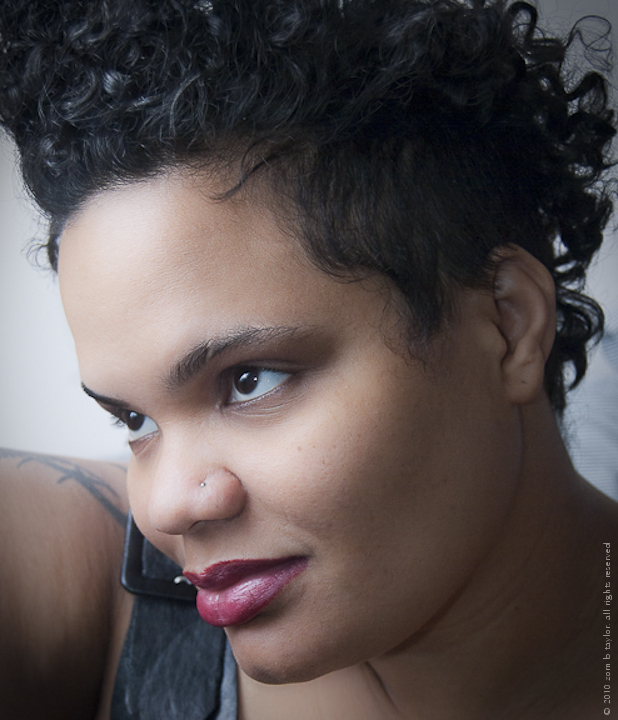
An award-winning writer, teacher, slam poet and performer, Amber Flame is also a singer and composer for multiple musical projects. Flame’s original writing and music has been published and recorded in many diverse arenas, such as Def Jam Poetry, Winter Tangerine, Requiem Press, The Dialogist, Another Passion, Jack Straw Productions and Wicked Banshee Press. Her one-woman play, Hands Above the Covers: Hairy Palms & Other Nightmares of a Church Kid, was mounted in residency at New City Theater under the auspices of a CityArtist grant through the City of Seattle's Office of Arts & Cultural Affairs. Since moving to the Bay Area, Flame works as a teaching artist with California Shakespeare Theater Company and co-produces the Oakland Slam. She performs regularly on musical, slam and literary stages, and is committed as an activist and organizer for a diverse number of theatrical, cabaret, queer, and POC communities. Amber Flame is one magic trick away from growing her unicorn horn.
Honorable Mentions:
Abortion by Myra Sklarew, Bethesda, MD
Cardboard Pope by Galina Yudovich, Washington, DC
Good Friday at the Abortion Clinic by Tracy Mishkin, Indianapolis, IN
Lighting the Way: The 3rd Annual Abortion Rights Poetry Contest Winning Poems (2014)
First Place: Sara Brickman, Migration Patterns
Second Place: Devi Lockwood, a poem about abortion
Third Place (tie): Adele Hampton, Reclaim
Third Place (tie): Seth Michelson, Book of Names
The 2nd Annual Abortion Rights Poetry Contest Winning Poems (2013)
First Place: Rayna Momen, Temple
Second Place: Devreaux Baker, My Sister
Third Place (tie): Lindsay Vaughn, Above Average
Third Place (tie): Maya Pindyck, Baby of the Month
The 1st Annual Abortion Rights Poetry Contest Winning Poems (2012)
First Place: Bridget Kriner, Women vs. Ernie
Second Place: Genie Abrams, Three Patients, One Morning
Third Place: Sue D. Burton, Bulletproof
